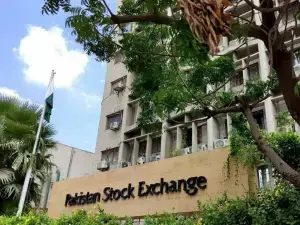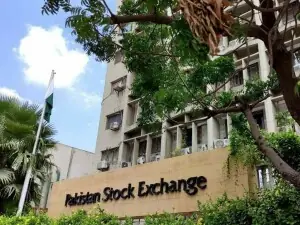The Pakistan Muslim League-Nawaz (PML-N) led coalition government in Punjab is working on a plan to introduce a health insurance scheme for proper medical cover.
PML-N President, Shahbaz Sharif had formed various working groups including the working group on health to make recommendations on various sectors, such as health, education, industry, SMEs, agriculture, law and order etc.
The idea behind formation of these groups is to introduce far-reaching revolutionary steps to ameliorate the lot of people of the province. All these groups are holding meetings in a bid to evolve necessary recommendations, sources told Business Recorder.
The working group on health has been assigned the task of making recommendations for introducing the 'Health Insurance Scheme' in the province so that people of the province could get proper medical cover. The scheme, if implemented, will be launched in a phased manner.
Analysts say the health insurance is a common practice in Europe and other developed countries but Pakistan is one of the third world countries where the government is offering hardly any or little incentive to downtrodden masses in the form of health insurance.
"Health insurance is very important for every citizen but unfortunately its ratio is dismal in the country and the government is offering no health insurance cover to the masses badly hit by food inflation. The people are facing escalating price hike while continuous increase in petroleum, vegetable ghee and oil prices and transport fares are badly hitting the countrymen," sources said.
In Pakistan, there is no trend of opting for health insurance on individual level. Though most of the multinational companies in Pakistan provide health cover to their employees after incurring huge expenditures but not all, they added.
If the government provides appropriate and required health cover to the people it would definitely affect the economy of the country and will help tackle health issues, they said.
Health professionals told this scribe that the existing health policy dose not provide for health insurance for the general masses. There is a dire need to have a health insurance for every individual, they added. Sources said it would earn good name for the government on one hand while help provide quality treatment to needy people.
When contacted, Regional Training Academy State Life Insurance, Lahore, Principal, Sultan Ahmed Sheikh told this scribe that health insurance is very important for every citizen but unfortunately its ratio is too low in the country and major reasons for not opting to health insurance are meager resources and lacking awareness. "Poverty, low income, low literacy rate and increasing inflation are other major reasons behind people not opting for health insurance," he added.
He said the government is main player in health insurance cover and by announcing 'National Health Insurance Policy' things could be put in place in right directions.
Health Insurance Policy can be launched in a phased manner in the country. First, particular segments such as employees of public and private sectors, journalists, etc, should be selected for this scheme and afterward its scope should be extended to whole, he said. He further said the government is spending substantial amount on health cover and the health insurance scheme can be introduced on the pattern of Group Insurance Scheme.
To a question, he said in Pakistan, out of the population of over 160 million, there are estimated 30 million bread earners out of whom there are only five million people who are insured. Therefore, there exists vast scope for the promotion of insurance industry in Pakistan.
It may be mentioned that Allianz EFU that was formed in 2000 with the joint venture between Allianz and EFU Group is now known as "the health insurance company" due to its innovative products, personalised services and state-of-the-art IT system.
A spokesman of the company said that his company is market leader in health insurance in Pakistan with over 35 percent of the market share. With focus on providing innovative and customised healthcare solutions for corporate and consumer segments, he said, "we are most experienced in handling the healthcare needs of large and jumbo groups."
BR100
16,307
Increased By
236.2 (1.47%)
BR30
51,537
Increased By
1163.4 (2.31%)
KSE100
157,953
Increased By
1775.7 (1.14%)
KSE30
48,199
Increased By
520.5 (1.09%)






















Comments
Comments are closed.